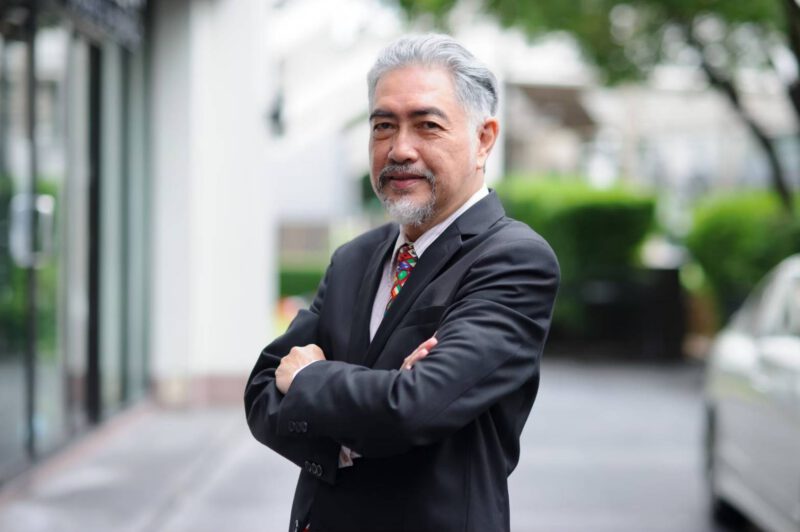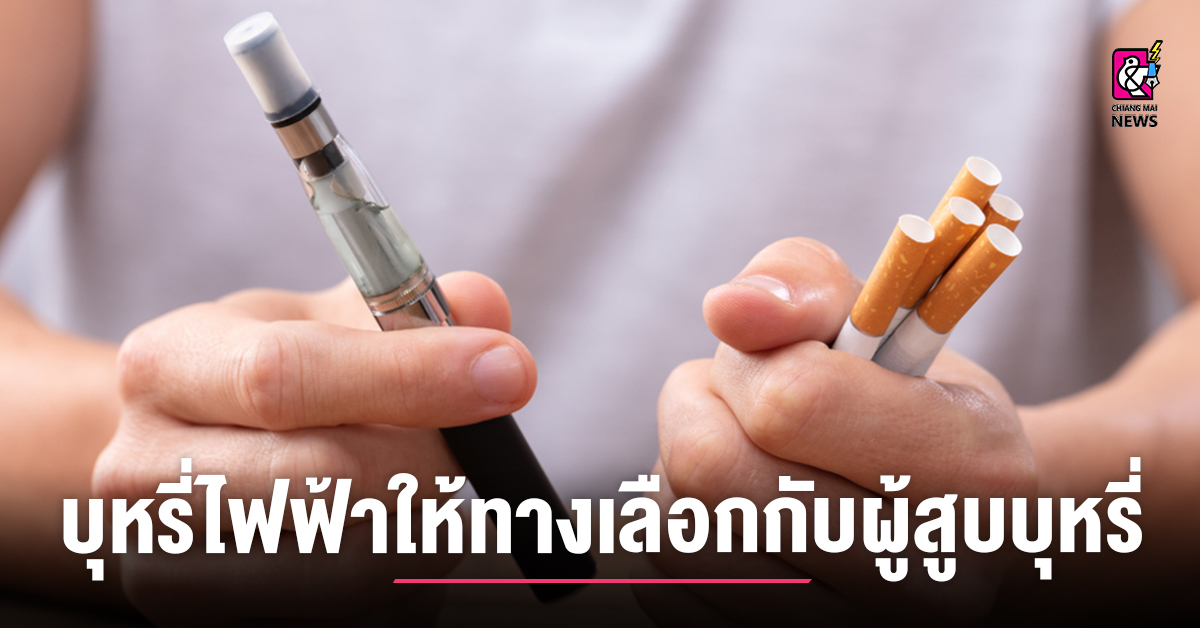นายอาสา ศาลิคุปต ตัวแทนเครือข่ายผู้ใช้บุหรี่ไฟฟ้า “ลาขาดควันยาสูบ” หรือ ECST และแอดมินเพจ “บุหรี่ไฟฟ้าคืออะไร” ซึ่งมีผู้ติดตามกว่า 100,000 คน เผยหลังมีข่าวรัฐบาลนิวซีแลนด์เคาะมาตรการเด็ดขาดเพื่อหยุดการสูบบุหรี่ในคนรุ่นใหม่ โดยห้ามเด็กเกิดหลังปี 2551 ซื้อบุหรี่หรือผลิตภัณฑ์ยาสูบไปจนตลอดชีวิตว่า “วัตถุประสงค์ของการทำให้นิวซีแลนด์เป็นประเทศปลอดควันมี 2 ส่วนสำคัญคือ 1. การควบคุมผลิตภัณฑ์ไร้ควันและสร้างความแตกต่างจากบุหรี่แบบเผาไหม้เพื่อสนับสนุนให้ผู้สูบบุหรี่เลิกบุหรี่หรือเปลี่ยนไปใช้ทางเลือกที่เป็นอันตรายน้อยกว่า และ 2. การเข้มงวดกับบุหรี่ซิกาแรตที่มีการเผาไหม้เพื่อค่อยๆ ให้หมดไป เพราะนิวซีแลนด์ตั้งเป้าหมาย ‘Smokefree 2025’ เพื่อลดอัตราการสูบบุหรี่ในประเทศให้เหลือต่ำกว่า 5% ภายใน ค.ศ. 2025 ซึ่งมาตรการทั้งหมดมาจากการยอมรับแนวทางการลดอันตรายจากยาสูบ (tobacco harm reduction) และชัดเจนว่ามาตรการดังกล่าวไม่ได้จำกัดการใช้บุหรี่ไฟฟ้า ซึ่งนิวซีแลนด์มองว่าเป็นเครื่องมือสำคัญในการช่วยเลิกบุหรี่”

นายกรัฐมนตรี จาซินดา อาร์เดิน กล่าวเมื่อเร็วๆ นี้ว่า “เรากำลังเห็นการใช้ผลิตภัณฑ์ไร้ควัน (การเวป) เป็นเครื่องมือในการเลิกสูบบุหรี่ของคนจำนวนมาก และนี่ทำให้เราสามารถผลักดันมาตรการต่างๆ เพิ่มเติมเพื่อลดการสูบบุหรี่เพราะมีทางเลือกที่ผู้สูบบุหรี่สามารถใช้เลิกสูบบุหรี่ได้อย่างประสบความสำเร็จ เรารู้ว่าการเวปได้สร้างความแตกต่างให้กับคนเหล่านั้นเพื่อเลิกสูบบุหรี่และเป็นเครื่องมือที่สำคัญ”

ด้านกระทรวงสาธารณสุขนิวซีแลนด์ก็พิจารณาเห็นว่าผลิตภัณฑ์ไร้ควัน (vaping) มีศักยภาพที่จะนำประเทศไปสู่เป้าหมายประเทศปลอดควันในปี 2025 และจะดิสรัป (disrupt) ความไม่เท่าเทียมที่เป็นอยู่ในปัจจุบัน ความตั้งใจอันดับแรกของแผนการนี้คือการปิดฉากการสูบบุหรี่ที่เป็นอันตรายของประชาชน ซึ่งมาตรการในแผนการนี้ยังรวมถึงการจำกัดการออกใบอนุญาตขายบุหรี่ให้กับร้านค้า รวมถึงการเพิ่มภาษีสมทบกองทุน แต่ไม่ได้มีการห้ามการขายหรือใช้บุหรี่ไฟฟ้าและผลิตภัณฑ์ยาสูบให้ความร้อน (HTP) ซึ่งได้รับการควบคุมอย่างถูกกฎหมาย และถูกระบุในแผนการสร้างประเทศปลอดควันว่าเป็นผลิตภัณฑ์ที่จะช่วยให้นิวซีแลนด์บรรลุเป้าหมายภายในปี 2025 ได้
ด้านนายมาริษ กรัณยวัฒน์ ตัวแทน ECST อีกรายเสริมว่า “นิวซีแลนด์เป็นตัวอย่างประเทศที่ให้ทางเลือกกับผู้สูบบุหรี่ และเลือกที่จะสร้างฉากอวสานให้กับบุหรี่ที่มีการเผาไหม้ซึ่งเป็นสินค้าที่อันตราย ก่อให้เกิดโรคร้ายต่อผู้สูบบุหรี่ แล้วเปิดทางเลือกหรือสนับสนุนให้ผู้สูบบุหรี่เปลี่ยนไปใช้ผลิตภัณฑ์ที่อันตรายน้อยกว่า เช่น บุหรี่ไฟฟ้าและ HTP แทน เพราะรัฐบาลเข้าใจดีว่าการห้ามหรือแบนแบบเบ็ดเสร็จเด็ดขาด โดยไม่มีทางเลือกที่ดีกว่าให้กับผู้บริโภค จะทำให้ตลาดใต้ดินเติบโต แต่ประเทศไทยกลับยังคงปล่อยให้มีการขายบุหรี่ต่อไปแต่กลับแบนบุหรี่ไฟฟ้าซึ่งตรงข้ามกับนิวซีแลนด์อย่างสิ้นเชิง อีกทั้งเมื่อได้ภาษีสรรพสามิตจากบุหรี่จำนวนมาก กลับเอามาทำกิจกรรมรณรงค์ที่ไม่ได้ช่วยให้ลดอันตรายกับคนสูบบุหรี่เลยแต่นำมาใช้โจมตีบุหรี่ไฟฟ้า แถมการแบนบุหรี่ไฟฟ้าก็แก้ไขปัญหาการลักลอบซื้อขายทางออนไลน์และแพลตฟอร์มดิจิทัลและการแอบใช้ไม่ได้ เพราะยังมีผู้ใช้ทั่วประเทศกว่า 5 แสนราย มีการซื้อขายผิดกฎหมายใต้ดินกันมูลค่าไม่ต่ำกว่าปีละ 6 พันล้านบาท จึงสนับสนุนรัฐมนตรีว่าการกระทรวงดิจิทัลเพื่อเศรษฐกิจและสังคมนายชัยวุฒิ ธนาคมานุสรณ์ ให้เดินหน้าศึกษาหาทาแนวทางแก้ไขปัญหาเรื่องดังกล่าว โดยเชิญหน่วยงานที่เกี่ยวข้องเช่นกรมสรรพสามิต กรมศุลกากร และกรมควบคุมโรค เข้ามาหาแนวทางแก้ปัญหาบุหรี่ไฟฟ้าบนช่องทางออนไลน์และนำบุหรี่ไฟฟ้าเข้ามาควบคุมให้ถูกต้องตามกฎหมายเช่นเดียวกับประเทศชั้นนำทั่วโลก”

E-Cigarette Network: NZ PM Supports Measures to Present Alternatives to Smokers, Decides against Blocking Vaping Products
Mr. Asa Saligupta, a representative of Ends Cigarette Smoke Thailand (ECST) and the administrator of Facebook Page: @endsthailand that has more than 100,000 followers, has spoken up after the New Zealand government resolved to bar children born after 2008 from buying cigarettes or tobacco products for life in a drastic move to prevent smoking among the new generation. “There are two key components of smokefree New Zealand. The first is to control and differentiate smokefree products from burning cigarettes so as to discourage smoking. The second is about being strict about cigarette usage so as to gradually curb smoking until it finally disappears. New Zealand has now pursued ‘Smokefree 2025’ goal by trying to push smoking rate under 5 per cent by 2025. The move resonates with tobacco harm reduction approach. Clearly, New Zealand does not restrict e-cigarette usage. It has recognized that e-cigarettes are key tools for smoking cessation,” Mr. Asa says.
Ms. Jacinda Ardern, the prime minister of New Zealand, has recently said that, “We have seen that vaping products help a number of people quit smoking. So, we have pushed for additional measures to curb smoking. There are alternatives that can help smokers successfully give up smoking. We have recognized that vaping is different (from smoking) and important to smoking cessation”.
The Public Health Ministry of New Zealand has seen vaping products as having the potential to support New Zealand’s bid to become smokefree by 2025. Vaping products can disrupt the trend of inequalities. The ministry’s move, first and foremost, aims to end smoking that is dangerous to people. The ministry, however, has also introduced other measures. Among them are restricted issuance of cigarette sales and increased special taxes. New Zealand does not ban heated tobacco products (HTPs). In New Zealand, HTPs are controlled and recognized as tools for smokefree 2025 goal.
Mr. Marit Karunyawat, another representative of ECST, says, “New Zealand has set an example for other countries in presenting alternatives to smokers. New Zealand has chosen to end smoking, which causes diseases to smokers when burned, by offering alternatives that will support smoking cessation. Smokers are encouraged to switch to less harmful products such as e-cigarettes and HTPs. The NZ government understands that a complete ban on smoking, without the presence of alternatives, will only bolster black market. Thailand, so far, has continued to allow cigarettes and to ban e-cigarettes. Thailand’s stance is an opposite of what New Zealand has embraced. After getting a massive amount of excise taxes on cigarettes, Thailand has waged campaigns that are not related to smokers’ harm reduction. The country has even campaigned against e-cigarettes. Its ban on e-cigarettes, meanwhile, is ineffective. Online distribution of e-cigarettes is still rife. More than 500,000 people in Thailand have still used e-cigarettes, giving the trade of more than Bt6 billion a year to black market. We therefore support Digital Economy and Society (DES) Minister Mr. Chaiwut Thanakamanusorn’s move to conduct a study to explore solutions on the issue by inviting relevant authorities such as the Excise Department, the Customs Department, and the Disease Control Department to explore guidelines on how best to solve problems related to the online distribution of e-cigarettes and to legalize e-cigarettes just like the world’s leading countries”.





ร่วมแสดงความคิดเห็น